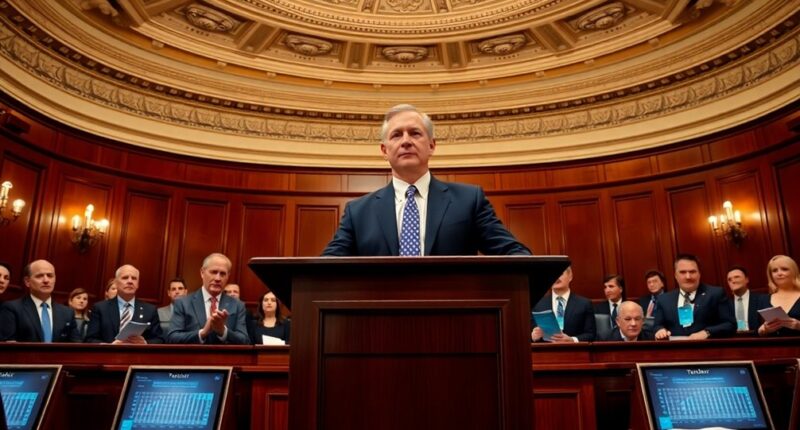In a recent Senate hearing, you might find it intriguing how Bitcoin advocate Howard Lutnick passionately defended Tether. He argued that Tether is backed by cash and cash equivalents, playing a crucial role in the cryptocurrency market. Lutnick's call for regular audits of stablecoins raises questions about transparency and trust. With regulatory scrutiny intensifying, how will this balance between innovation and stability shape the future of cryptocurrency?

As regulatory scrutiny mounts around Tether, a prominent Bitcoin advocate steps up to defend the controversial stablecoin. Howard Lutnick, known for his strong support of cryptocurrencies, faces tough questions regarding Tether's financial practices and its role in the crypto ecosystem. You might wonder why Lutnick is so keen to back Tether, especially with allegations of insufficient reserves and links to money laundering swirling in the air. His defense stems from the belief that Tether has a significant role in facilitating cryptocurrency transactions globally, despite its challenges.
During a recent Senate hearing, Lutnick emphasized Tether's claim of being backed by cash and cash equivalents, including Treasury bills. He pointed out that Cantor Fitzgerald manages Tether's reserves, a factor that adds a level of credibility to its financial structure. Lutnick argues that while Tether faces scrutiny, it's crucial to recognize its widespread use and the necessity for stablecoins in the market. After all, USDT remains a primary stablecoin, even amid the controversies.
You might find it interesting that Tether's reserve composition includes not just cash but also corporate bonds, gold, Bitcoin, and other assets. Critics, however, have raised concerns about the quality and liquidity of the commercial paper in Tether's reserves. Lutnick acknowledges these concerns but insists that Tether is committed to transparency, citing its quarterly attestations detailing its assets. He believes that regular audits of stablecoins could enhance trust in not only Tether but the broader cryptocurrency market. Cantor Fitzgerald's management of Tether's reserves is essential in ensuring the stability and integrity of the stablecoin.
As regulatory pressures mount, with bipartisan calls for stricter oversight in the U.S. and the EU's MiCA regulations posing challenges, Lutnick remains optimistic. He suggests that a more permissive regulatory environment could spur growth in the cryptocurrency space. With Cantor Fitzgerald's influence in managing Tether's assets, Lutnick sees potential for a responsible evolution of stablecoin regulations.
You might also be thinking about the implications of a potential Trump administration on Tether's regulatory landscape. Lutnick argues that clear guidelines could stabilize the market and benefit investors. In an atmosphere of uncertainty, his advocacy for Tether reflects a belief in its foundational role in the crypto ecosystem. As debates continue, Lutnick's defense underscores the importance of finding a balance between regulation and innovation in the ever-evolving world of cryptocurrencies.









